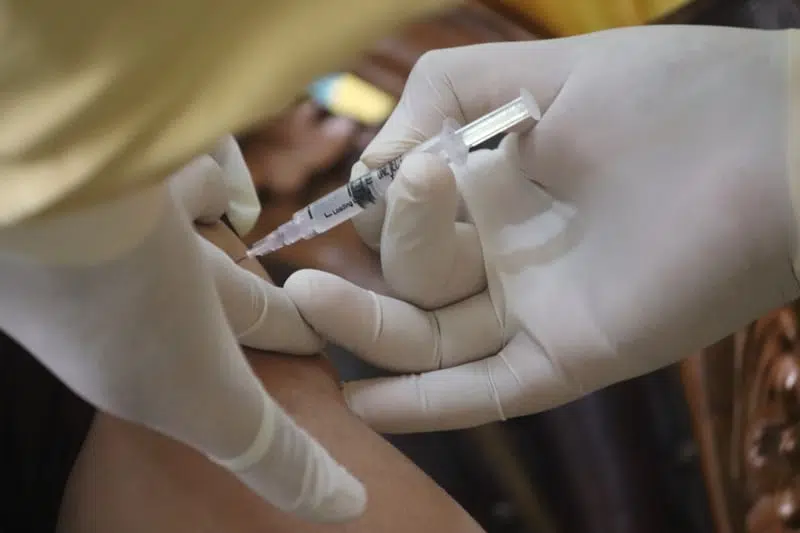
February 8, 2022 – An antibody treatment that can reduce severe illness, hospitalizations and death for high-risk patients with the most recent COVID-19 variant is available at Jacksonville Memorial Hospital.
The monoclonal antibody infusion treatment, sotrovimab, can be used to treat patients 12 years old and older and is administered as an outpatient service at the nonprofit hospital.
Sotrovimab has proven effective against COVID-19’s omicron variant, which emerged locally in mid-November. The omicron variant is resistant to other antibody therapies used to treat previous COVID-19 variants.
Patients must have a physician’s referral to receive the treatment. With the stock of monoclonal antibodies outpacing demand across the nation, Jacksonville Memorial Hospital also has a “limited and restricted supply” available, said Dr. Scott Boston, president and CEO of Jacksonville Memorial.
Like antibody infusion treatments before it, sotrovimab is administered through an IV at a hospital or other facility with infusion sites.
“It’s not a cure, but it does appear to slow progression and worsening of the disease. It’s ideal for anyone with mild or moderate COVID-19 symptoms,” said Dr. Anthony Griffin, Jacksonville Memorial’s chief medical officer.
Antibody infusion treatment is beneficial for individuals in the most vulnerable of high-risk groups, such as those older than 65, who are obese, have high-risk health conditions, poorly controlled diabetes or compromised immune systems, Griffin said.
Patients seeking the antibody infusion treatment should first check with their primary care physician to learn if they qualify for it.
The omicron variant accounts for about 98% of COVID-19 cases in the country, according to information posted by the Centers for Disease Control and Prevention.
Jacksonville Memorial Hospital has offered monoclonal antibody infusions since December 2020 and has administered more than 600 infusions through the hospital’s outpatient department. The hospital recently stopped using monoclonal antibody infusions when it became clear the treatments that had worked against previous COVID-19 variants were ineffective against the new variant.
“Treatment decisions became difficult to make because we don’t have a quick way of knowing if a patient is infected with delta or omicron,” said Boston. “But, with omicron variant rates now significantly higher than delta in our region, our best bet is to use the antibody infusion treatment that is proven effective against all COVID-19 variants.”
